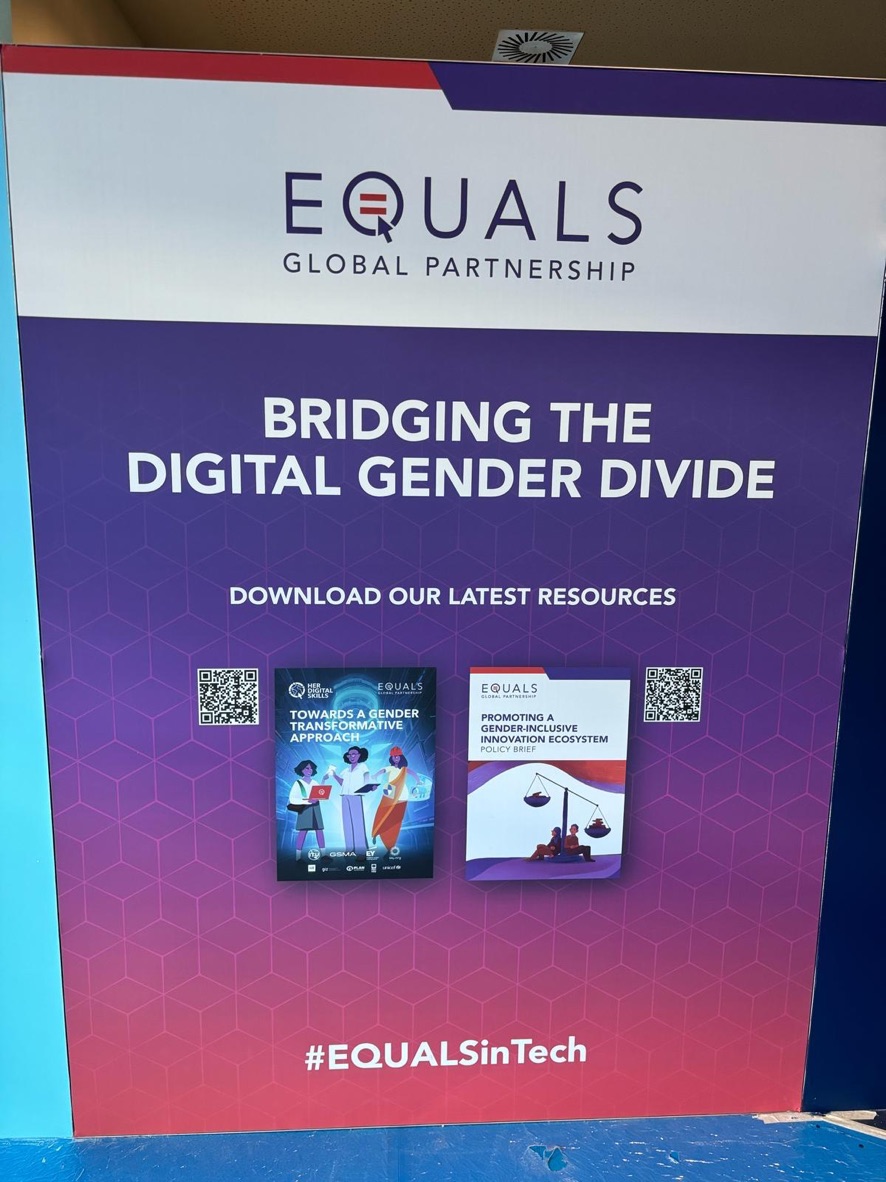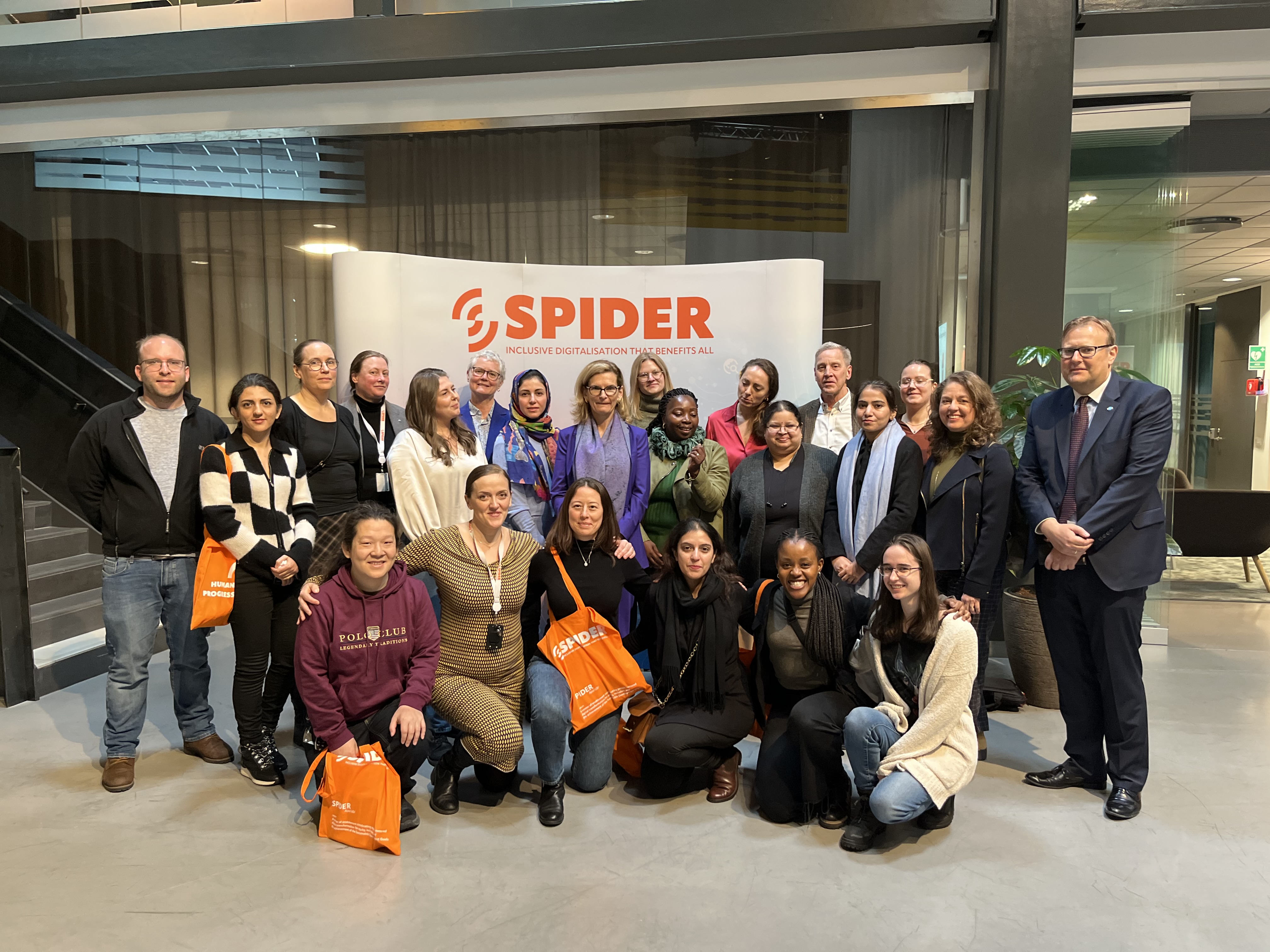Gender and technology
Target – 5.b: Enhance the use of enabling technology, in particular information and communications technology, to promote the empowerment of women
The intersection of women, gender, and the utilisation of information and communication technologies (ICT) and global digitalisation has unearthed surprising and transformative linkages, redefining socio-economic landscapes globally.
Digital technologies can act as an equalizer for gender disparities. While traditional societal structures often perpetuate gender inequities, ICT and digitalisation have the potential to bridge these gaps. For instance, they offer avenues for remote work or entrepreneurship, providing flexibility that can be particularly beneficial for women who face constraints due to caregiving responsibilities or societal norms limiting their mobility.
Furthermore, the adoption of digital tools has given rise to platforms that amplify women’s voices and causes. Social media, blogging, and online communities have become powerful instruments for advocacy, empowering women to discuss pertinent issues, share experiences, and mobilize for change on a global scale. This connectivity has facilitated solidarity across borders, fostering movements for gender equality and women’s rights. This change only comes about by pursuing gender equty purposefully, as SPIDER does.
Yet, amidst these positive strides, there exist digital divides that disproportionately affect women. Disparities in access to technology, digital literacy, and online safety persist, impacting women in marginalised communities more profoundly. This accentuates existing societal inequalities, hindering the full realisation of the potential benefits of digitalisation.
Additionally, the emergence of artificial intelligence (AI) and machine learning in various sectors introduces nuanced concerns regarding gender bias. Algorithms trained on historical data often perpetuate existing gender stereotypes, inadvertently reinforcing societal biases in decision-making processes. Addressing these biases demands a concerted effort to ensure that AI systems are developed ethically and inclusively.
In essence, the linkages between women, gender, and ICT amidst digitalisation are multifaceted. While technology presents opportunities for empowerment and advocacy, the challenges of access, inclusivity, and gender bias underscore the imperative of a comprehensive approach towards harnessing technology for gender equality and societal progress.
How SPIDER advances gender equity in technology
Inclusion, representation and intersectionality should never be an afterthought. By acknowledging bias in our real as well as digital worlds we can start addressing the structures that enable inequity to persist.
SPIDER both explicitly coordinates programmes with specific gender and technology outcomes but also embeds an analytical in all its projects. This is why you can read about telecom regulators who choose change initiatives that encourage women to pursue careers in technology. Some of our partners have spear-headed girls in ICT initiatives that alter the technology landscape and create space for innovation that is inclusive.
SPIDER represents and encourages African women to take their rightful place in academia in the GeJusta project and thoroughly explores gender and innovation spaces in the EU-Equals initiative.
EQUALS-EU
Experience the cutting-edge developments in social and digital innovations within the European Union through EQUALS-EU. The initiative brings a novel perspective to the forefront, scrutinising both the products delivered to society and the processes driving these innovations, ensuring a gender-balanced approach. This focus is imperative given recent data indicating a concerning decline in gender equality progress across the union.
GeJusta
SPIDER is proudly part of GeJusta, a project comprising a network of women change-makers and male allies focused on tackling the underrepresentation of women in STEM. The goal is to pathways for gender justice in STEM research in Africa. The GeJusta network has members from universities and NGOs based in Kenya, Uganda, Sweden, South Africa, Zambia, and the United Kingdom.
iPRIS
The work of ICT regulators is key for gender equity, diversity and inclusive societies. SPIDER delivers a practical and intersectional training for the 43 countries involved in the iPRIS project. The expected outcomes is a more inclusive policies that bridge the digital divide and take steps towards encouraging women’s equal access to digital tools, more representation at leadership levels and wholistic approaches to digital transformation.
Latest updates from SPIDER's Gender work
Supporting every girl’s digital future
As we celebrate a decade of girls in ICT commemorative day, at SPIDER we reflect on some of the projects that have brought digital to girls:
Mobile World Congress highlights Gender Policy Brief by SPIDER
Are you attending the Mobile World Congress this week? The event brings together top global companies, governments, tech businesses, and senior executives to exchange ideas on the future of mobile technology. Conversations throughout the week will shape the future of mobile tech. For SPIDER, working on inclusive digitalization that benefits…
EQUALS-EU Policy brief
How to do gender inclusive innovation What characterises gender-inclusive innovation ecosystems? SPIDER Director, Dr. Caroline Wamala Larsson has written a policy brief based on the research on the innovation sector and gender inclusion made for the EQUALS-EU project. The brief features a gender-inclusive innovation standard, recommendations and key action…
Connecting for Health: The role of Connect Somalia
Connect Somalia serves as a bridge, connecting the diaspora with healthcare needs in Somalia Why Diaspora Matters Throughout history, diaspora has played an important role in shaping the destinies of nations. Serving as a pool of diverse skills, resources and untapped potential, the diaspora’s influential presence goes beyond borders. In…
ITU Lead visits SPIDER and DSV to celebrate women in tech
The Secretary General of ITU visits SPIDER to launch campaign Just over a quarter of people working in technology jobs identify as women, and the progress towards equality in the sector seems slow. There are many theories and experiences that can inform how we can propel equity in tech, and…
Mapping cervical cancer efforts is underway
UNITED AGAINST CERVICAL CANCER The Kenyan Network of Cancer Organisations (KENCO) received SPIDER grants to undertake an essential mapping of 15 African countries and thereby creating a resource for these countries to have overview of the digital projects, products and research that could be coordinated for the elimination of Cervical…
Explore SPIDER’s work for the Sustainable Development Goals
Women's health
SPIDER has since 2016 supported efforts to eliminate cervical cancer i the African continent where it is the cancer that kills most women.
ICT Policy and Regulation
SPIDER coordinates a multi-country and multi-sector project supporting change initiatives by 43 Afrcian Regulatory Authorities
Women's leadership in community building
Women’s participation and leadership in community forums, peace-building efforts is central to peace and justice.
F.A.Q.
How is gender relevant to digital transformation?
Gender is highly relevant to digital transformation as it influences how individuals, particularly women, engage with technology and benefit from the digital transformation. Digital tools can either exacerbate existing gender disparities or serve as a catalyst for positive change.
What is the gender digital divide?
The gender digital divide refers to the gap between men and women in terms of access to and usage of information and communication technologies.
What are the main barriers preventing women from accessing ICTs?
Barriers include limited access to technology, lack of digital skills, socio-cultural norms, online harrassement, and insufficient representation in the tech sector.
How does ICT impact women's empowerment?
ICT can empower women by providing access to education, healthcare, and economic opportunities. It also facilitates communication and networking, enabling women to participate in decision-making processes.






